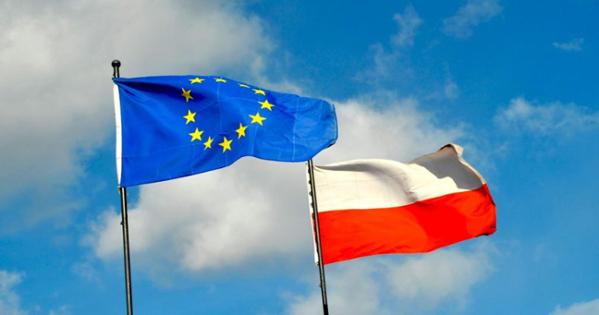Donald Tusk's Coalition Government: A New Hope for Polish-EU Relations

Introduction
The October 2023 parliamentary election in Poland marked a great triumph of democracy over authoritarianism in an era characterized by a deterioration of the rule of law, human rights, and relations with the EU. After two months of uncertainty about whether former Prime Minister Mateusz Morawiecki would be able to form a government, President Andrzej Duda was finally forced to offer Donald Tusk, leader of the Civic Coalition (KO), the chance to form a government. KO, the mainstream center-right party, subsequently entered into a coalition with Trzecia Droga (Third Way), and Lewica (The Left), and Tusk was sworn in as Prime Minister on December 13th. While a coalition between these three politically distinct parties may have previously seemed unlikely, they have united under the common goal of undoing the damage done by PiS. Tusk, the former European Council President from 2014-2019, has since pledged to repair ties with Brussels following years of disputes over matters such as the rule of law, migration, and climate with the EU. Tusk has especially promised to comply with rule of law milestones set out by the EU in order to unblock over 76 billion euros in Cohesion Funds and to end the Article 7 proceedings launched against Poland in 2017. The unblocking of such funds served as a focal point in the KO platform, as such funding is targeted to primarily poorer regions within the EU. Additionally, while Poland’s voting rights in the European Council were never suspended for its rule of law violations due to support from Hungary, recent efforts to suspend the procedure have largely served as a symbolic gesture of repairing ties with the EU.
Backsliding and Conflict with the EU Under Law and Justice (PiS)
The period of PiS rule was characterized by a great deal of democratic backsliding, involving reforms to the state media, an overhaul of the judiciary, abuse of the Prosecutor’s Office, attacks on the LGBTQ+ community, and a near total ban on abortion. During this time, PiS merged the role of Minister of Justice and the Prosecutor General, increased the powers associated with the role, and packed the state’s prosecution services with loyalists. Additionally, PiS passed legislation in 2016 that allowed it to create a National Media Council, which has the power to nominate heads of TVP, Polish Radio, and the Polish state news agency (PAP). This allowed PiS to exert great political control over state media.
With regard to the judiciary, PiS paralyzed the Constitutional Tribunal by passing a law to reverse the nomination of five candidate judges and nominate its own candidates. This was later followed by a reform to the National Council of the Judiciary (NCJ), which allowed the Sejm (the Polish Parliament) to elect a majority of members instead of judges themselves. PiS additionally decreased the retirement age for judges on the Supreme Court, forcing about forty percent of judges to retire.
That same law established a Disciplinary Chamber for Judges, which was instrumentalized to terminate judges critical of reforms. Such reforms posed an immense threat to judicial independence in Poland, as they allowed for a great deal of political influence within the judicial system.
These reforms to the judiciary have been the center of Poland’s quarrels with the EU. In 2017, the EU launched an Article 7 proceeding against Poland, however, the suspension of Poland’s voting rights in the European Council hasnot occurred due to a lack of unanimity. More importantly, the Commission suspended over 76 billion Euros in Cohesion funding along with 35.4 billion Euros in Recovery and Resilience funding allotted to Poland, conditioning the release of such funding on the dissolvement of the disciplinary chamber for judges along with other judicial reforms. On top of this, Warsaw, along with Budapest, continuously antagonized Brussels on the matters of migration and climate through violating EU law by refusing to accept refugees, blocking joint declarations on migration, and bringing forward lawsuits against the EU to hamper climate-conscious regulations. Prior to the change in government, Warsaw was in an endless tug-of-war with Brussels on multiple fronts.
Repairing Old Ties
Following the 2023 elections, Tusk immediately visited Brussels to lay out a vision of a pro-EU Warsaw that is prepared to restore ties that were soured under the PiS government.
With regard to restoring the rule of law, new Justice Minister Adam Bodnar has made an effort to find replacements for judges and prosecutors who were installed under PiS and to decouple the roles of the Justice Minister from the Office of the Prosecutor General. Additionally, Bodnar pledged that the independence of the NCJ and Constitutional Tribunal will be restored. However, concerns over parliament's ability to pass legislation reforming the NCJ and CT remain, as the president may veto reforms. In the event of a presidential veto, the Sejm would be paralyzed as it lacks the necessary three-fifths majority to block it. In the past weeks, Poland has made strides in kickstarting judicial reform, and dialogue regarding these reforms between Brussels and Warsaw is ongoing. In January, Poland informed the Commission that it has met the necessary conditions to receive the first tranche of Cohesion funds, and the Commission will release its decision within the next three months. In the meantime, Bodnar made a visit to Brussels on February 20th in which he presented a rule of law action plan that has been accepted by the Commission. The plan, as promised, will include reforms to the NCJ.
On the issue of climate, Warsaw has demonstrated an openness to improve cooperation with Brussels through withdrawing lawsuits the previous government filed against the EU. Many of these lawsuits involve the EU’s climate-conscious regulations, such as a ban on the sale of carbon-emitting cars starting in 2035, and a policy on setting national targets for cutting emissions. Additionally, the State Secretary of the Polish Climate and Environment Ministry announced in January that Poland will now support the EU 2040 target to cut greenhouse gas emissions by 90%, pledging that the country will begin to phase out the use of coal as a primary source of energy.
While Warsaw and Brussels seem to be on the same page about restoring cooperation in the areas of rule of law and climate, dialogue on matters of migration remains shaky and uncertain. Tusk seems to be continuing the tone of PiS on the matter, stating that Poland will not accept any migrants under the new Migration Pact, which is still yet to be approved by the European Council. The new pact allows member states to accept a quota of relocated migrants or pay a “solidarity payment” to frontline member states. It is still unclear whether Poland will choose to pay the solidarity payments or oppose the pact all together.
Conclusion
While Polish-EU relations generally seem to be getting back on track, it is important to note that the new coalition government has a long road ahead of it in terms of reversing eight years of damage done by PiS. While some reforms have begun to take place, many will require new legislation to be passed, which is unlikely to happen unless a more favorable president is elected in 2025. For the new government, reform will be far more complicated than it was for PiS, as they cannot simply expel and replace personnel of state institutions as PiS did during its tenure.
Another complication for Tusk will be winning the lasting favor of the public. While support for KO has been on the rise, it is important to remember that PiS still won the largest share of votes in the election. Years of fear mongering, memory politics, and polarization have left a large segment of the electorate disillusioned with the EU, and the suspension of EU funds has only fueled PiS’s anti-EU narrative. While reforms and a government willing to repair old ties are essential to repairing Polish-EU relations, a major struggle for Tusk and his government will be convincing the public that such changes are in their interests. This will be essential to ensure that relations are repaired in the short run and that support for Brussels is solidified in the long run.
About the Author

Stephanie Siemek is an undergraduate pursuing a degree in International Studies at American University with athematic concentration in global and comparative governance and a regional concentration in Europe and Eurasia. Her research interests include democratic backsliding in Eastern Europe and the role that the European Union plays in holding member states accountable. She recently spent four months in Brussels interning for the Open Dialogue Foundation, a human rights and democracy organization, and studying the European Union and NATO.
